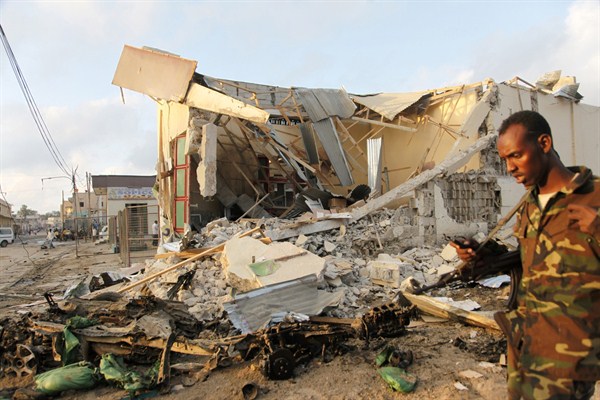Two suicide bombs went off Sunday in Baidoa, Somalia, leaving at least 20 people dead and 60 injured, in an attack claimed by the Islamist militant group al-Shabab. In an email interview, Ken Menkhaus, a professor of political science at Davidson University, discussed the fight against al-Shabab and the security situation in Somalia.
WPR: What is the current security situation in Somalia, and how much does it vary locally across the country?
Ken Menkhaus: The security situation across Somalia is harder to generalize than one might expect. Most media reports give the impression that Somalia is uniformly dangerous, but actual security conditions for local communities vary tremendously along regional, neighborhood, class and ethnic lines. Regionally, most of the north of the country, including Somaliland and Puntland, is more peaceful and less crime-ridden than the south of the country. In Hargeisa, the capital of Somaliland, businesses operate freely; political and civic leaders move about without the need for private security; and citizens walk the street day and night with little concern about violent crime. By contrast, in Mogadishu, the country’s capital, armed protection is essential for businesses and prominent people. The threat of targeted political violence, violent crime, communal clashes and al-Shabab terrorist attacks continues to be very high in the south.
But even within Mogadishu there is significant variation in security. Some neighborhoods—where a combination of private business security, government forces, and African Union Mission in Somalia (AMISOM) peacekeepers are present—are viewed as much safer than others. Dramatic differences in the value of real estate across different parts of the city are driven by variations in security.

